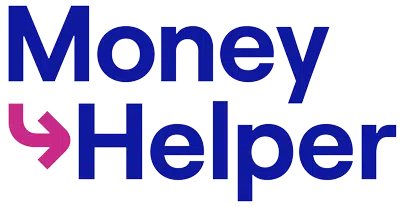

To discover more about how to manage your debt and to receive free debt advice, you can visit www.moneyhelper.org.uk or read about options for paying off your debt.
Available to people in England, Wales and Northern Ireland, Individual Voluntary Arrangements (IVAs) are a formal, legally binding agreement between you and your creditors that sees you repay your debts over a set time period.
An IVA is approved by the court and, as such, your creditors must stick to it. An IVA typically lasts for around five or six years. Once it ends, any remaining debt included in the arrangement is written off.
While you are in an IVA, your creditors must stop chasing you for repayment and they are not permitted to charge interest on your debts. Any contact between you and your creditors goes through an Insolvency Practitioner (IP) or your debt management company.
During the IVA, you’re required to make agreed payments. This might be a monthly sum or a single lump sum.
How does an IVA work?
IVAs are set up by qualified IPs. You’ll agree a repayment plan with your IP, and once the IVA starts, you’ll make your payments to this person. They’ll keep some of this money to cover their fees and the rest will be divided among your creditors.
Your IP will review your finances each year during your IVA. If your circumstances change, for example, you get a pay rise in your job, you’ll be expected to increase your debt repayments. This means you must tell your IVA provider if you have any increases to your income, or you get money through other means. This may be through an inheritance, for example.
The below video will walk you through the key aspects of an IVA, the application process and the potential benefits it can offer you for your financial well-being.
During the IVA, you won’t be able to take out new credit for more than £500 without permission from your IP.
What debts can be included in an IVA?
Many types of debt can be included in an IVA, such as:
- Personal loans
- Council tax arrears
- Payday loans
- Utility arrears (for example, electricity and gas bill arrears)
- Credit cards
- Overdrafts
- Catalogue debts
- Income tax and National Insurance arrears
- Debts to family and friends
- Benefit or tax credit overpayments
- Store cards
- Other outstanding bills, such as invoices for work done to your home
However, not all debts can be included in IVA. Among the debts you can’t include in an IVA are:
- Student loans
- Magistrates’ court fines
- Child support arrears
- Social Fund loans
- Maintenance arrears ordered by a court
If you have debts like these that can’t be incorporated into your IVA, you’ll need to deal with them separately. That means you’ll need to ensure you have enough money to keep paying these debts before you make your IVA payments.
What are the different types of IVA?
As well as standard IVAs, there are variations available that may be better suited to certain people.
Interlocking IVAs
If you have debts that are jointly owned by you and another person, such as your spouse or partner, you might want to take out an ‘interlocking’ IVA. Standard IVAs only cover one person, but with an ‘interlocking’ IVA, you might be able to take out individual IVAs that are connected. You can ask your IP for more details on this.
Self-employed IVAs
If you work for yourself, you may be able to apply for a self-employed IVA. These IVAs are designed to be more flexible than their standard equivalents. For example, monthly payments can differ to account for the fact that your income may vary – as long as the total amount paid over a year is in line with the terms of the IVA.
Also, unlike with a standard IVA, which treats all creditors equally, when you take out a self-employed IVA, you have the option of prioritising certain creditors if you have to pay them in full in order to carry on trading.
Is an IVA right for me?
As with any debt solution, it’s crucial to ensure you’re fully informed before making a decision about whether an IVA is a good option for you. Our debt advisors will be able to give you all the information you need about the debt solutions available and the eligibility criteria for each.
You might be eligible for an IVA if:
- You’re a resident of England, Wales or Northern Ireland
- You have debts of at least £6,000
- You owe money to two or more separate creditors
- You are insolvent, meaning you are not currently able to repay the money you owe
An IVA might be a good option for you if you have a stable income but you’re finding it difficult to make your ongoing debt repayments. You must be able to commit to making repayments under the terms of the IVA on time, and you will need to be honest with your IP about your financial situation from the outset of the IVA and for its duration.


To discover more about how to manage your debt and to receive free debt advice, you can visit www.moneyhelper.org.uk or read about options for paying off your debt.

